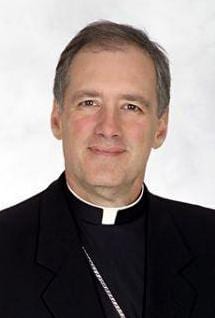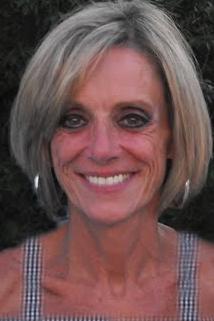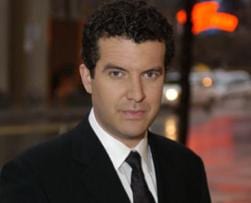
Bishop Paul-Andre Durocher

HCSB trustee Jane Michael
The Halton Catholic District School Board’s (HCDSB) ban on gay-straight alliances (GSAs) has galvanized thousands to speak out. For many, the issue keeps coming back to a clash between fundamental rights to equality and religious freedom.
Noa Mendelsohn Aviv, director of the equality program at the Canadian Civil Liberties Association (CCLA) ,is calling on Canadian high school students to start gay-straight alliances at their high schools – whether Catholic or public.
She says it’s “incredibly ironic” that the spotlight is on this issue now, just as the It Gets Better campaign is hitting the airwaves and telling students that “it gets better” after high school.
“Now we have certain school authorities telling students ‘Not now.’ I’m so glad you have brought attention to this. Finally there is this awareness of what people have known for a long time, that of the extreme vulnerability of LGBT students and the explicit mention of GSAs in the Ministry of Education [equity and inclusive education] policy.”
Speaking strictly from a Canadian Charter perspective, students have the right to equality, she says. They have the right to get together with like-minded people in groups or clubs.
“In my opinion, yes, they are breaking Charter laws by not allowing gay-straight alliances,” she says. “Even more obvious is the right to freedom of association, which says you can get together with people of your choosing.”
“Those rights and freedoms belong to all people in Canada, including our youth. Part of the problem here is you have this overlap of religious authority determining educational policy at a publicly funded school.”
In the days following Xtra’s Jan 6 story that uncovered the ban, more and more people spoke out, slamming the board. Rick Mercer, host of CBC’s Rick Mercer Report, was asked by the Toronto Sun if the Dire Straits song “Money for Nothing” is offensive (a version of the song was censored by the Canadian Broadcast Standards Council because it contains the word “faggot.”)
Mercer was quoted Jan 14 saying, “The song doesn’t offend me, because it’s all about context, and it’s a character line spoken by an ignorant person who is jealous of a glam rock and roll star.
“Issues like this crowd out real issues of intolerance. In Ontario, the Halton Catholic school board banned the formation of gay-straight alliances in high schools. The chair of the board compared them to Nazi groups. That’s something worth talking about. I’m more concerned with helping kids at risk than offending the sensibilities of older people who listen to classic rock stations at work.”
In a press release that made the rounds on Twitter, Ken Lewenza, president of the Canadian Auto Workers Union, called on the HCDSB to reverse its ban.
In a letter to trustees, Lewenza said that GSAs are essential to promoting safe and respectful learning for all students.
Banning GSAs “will further isolate lesbian, gay, bisexual, transgender and queer students and students of same-gender families. LGBTQ youth who routinely hear homophobic or transphobic comments need a safe place to turn,” wrote Lewenza.
Research shows that gay and trans students who feel isolated and bullied are three to four times more likely to attempt suicide. They have increased rates of depression, are more likely to be victims of discrimination and violence and have higher school drop-out rates, he stated.
Lewenza also pointed out that in the province of Ontario, Catholic school boards are publicly funded and therefore should be mandated to follow policies set out by the Ontario government, including the acceptance and promotion of gay-straight alliances in schools.
Egale Canada’s Helen Kennedy tells Xtra she is throwing her support behind the movement to overturn the ban and bring every Catholic school board’s policies in line with the province’s Human Rights Code. “This is a clear violation of rights,” she says.
It was a letter from Bishop Paul-André Durocher, chair of the Education Commission of the Assembly of Catholic Bishops of Ontario (ACBO), to the HCDSB and all Catholic school boards in Ontario that led to the ban.
Durocher told boards that the ministry-proposed gay-straight alliances imply a self-identification with sexual orientation that is often premature among high school students.
The bishop’s strategy? There is no violation of a policy prohibiting discrimination on the grounds of sexual orientation if you claim high school students are too young to have a sexual orientation.
Students who struggle to come out as gay, lesbian or trans will, of course, disagree.
“Is the bishop’s letter seen as a religious directive? Certainly it seems the schools see it that way,” says CCLA’s Mendelsohn Aviv. “From the position of our organization, it highlights the problematic nature of having publicly funding religious schools at all. How do you begin to deal with the religious directive that is in conflict with the board of education?
“A policy that is anti-gay is in conflict with the board directive.”
HCDSB board chair Alice Anne LeMay says Catholic schools have special rights to define religion standards. Many boards, Halton included, have removed “sexual orientation” and “gender” from their equity policies.
“That’s the rights of the Catholic schools,” LeMay says. “We have denominational rights. And our rights say we will not do anything against magisterial of the Catholic Church.”
But Mendelsohn Aviv says it simply doesn’t wash that the Catholic board gets to follow one set of rules while the public board follows a different set.
“Not when we’re talking about fundamental rights,” she says. “And that’s what these are. They are fundamental constitutional rights, recognized universally and recognized as the basic rights and freedoms of Canadians. High school students are still Canadians and they’re still people.”
Mendelsohn Aviv says the CCLA may attend the HCDSB board meeting on Jan 18. That’s when trustees will vote on whether to strike down the GSA ban and scrap the equity policy.
“Assuming the [lifting of the ban] does go forward, what happens next? And what about the students in other districts in Ontario or somewhere else in Canada, where LGBT students are trying to form GSAs or other gay-positive groups and they are being blocked. That’s when we will try to get involved.
“In addition to looking at policies, which absolutely needs to be done, we also have to look at what’s happening in practice,” she says. “It’s extremely important for these students to put forward a gay-positive message in their schools.”
Two Grade 12 HCDSB students have already stepped up to launch a human rights challenge if the GSA ban isn’t rescinded.
Dennis Baker is an assistant professor of political science at Guelph University, specializing in constitutional law, Canadian politics and political theory. His research focuses on the separation of powers, particularly the relationship between the courts and the representative branches.
Baker has written on a number of constitutional controversies including same-sex equality cases. He says the students would have grounds for a human rights complaint.
Xtra’s investigation has revealed that the Halton board’s actions are not unique among Ontario’s 28 Catholic school boards. It is, however, one of the boards that have gone the furthest with anti-gay policies.
One third of Ontario Catholic boards don’t have “sexual orientation” in their equity policies, says Sarah Kelly, a master’s of teaching student at the Ontario Institute for Studies in Education (OISE), who has been poring over board documents.
Even those Catholic boards that don’t ban GSAs, Baker says, may be working in a grey area with regard to human rights. It comes down to how freedom of religion is reconciled with the equality guarantee in the Charter.
“It’s not entirely clear they are in violation of the Human Rights Code of Ontario,” he says. “In the Charter [Catholic schools] do have freedom of religion as a fundamental freedom.”
“And the Supreme Court has been very clear we need to be tolerant on the grounds of sexual orientation, including going so far as to include sexual orientation in human rights statutes,” he says.
“Alberta famously left it out and the Supreme Court put it back in. But the scope of freedom of religion isn’t well defined. No one knows how far you can make a defence based on freedom of religion.
“In all gay rights cases the court has mentioned a human rights aspect but refused to define it clearly. It’s confusing because we don’t have definitive cases where they conflict straight on, and the courts say this value trumps this one.”

 Why you can trust Xtra
Why you can trust Xtra


